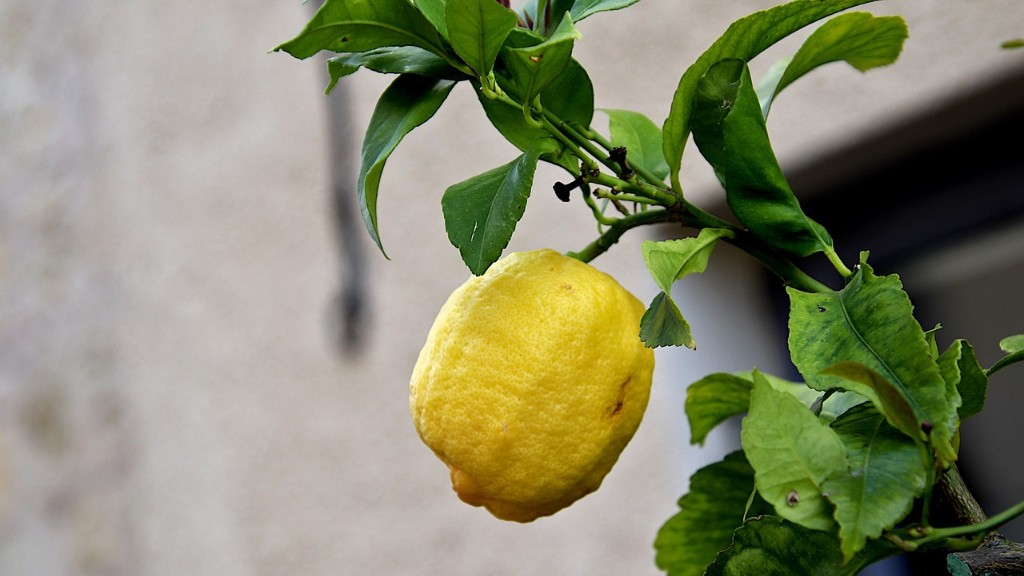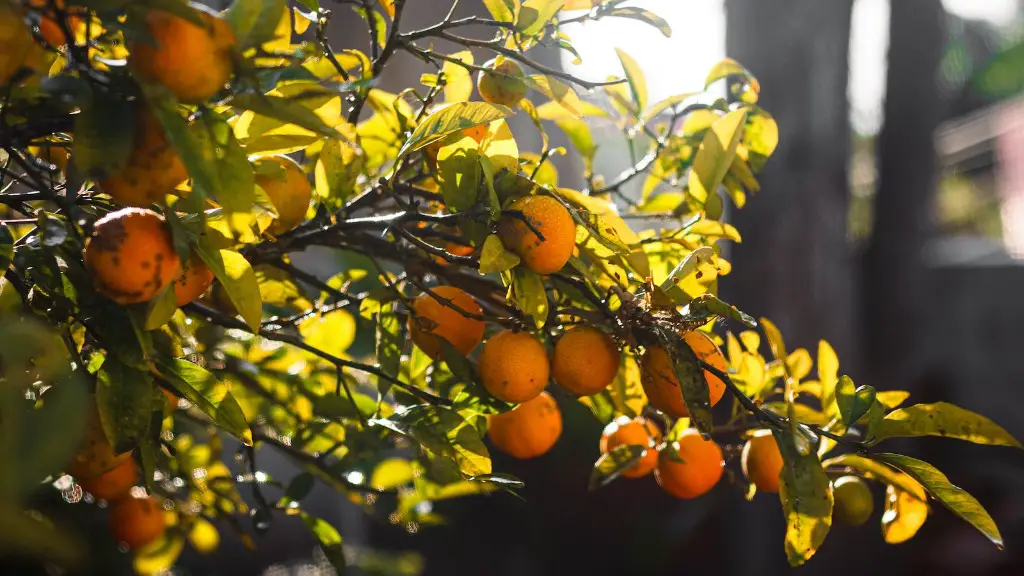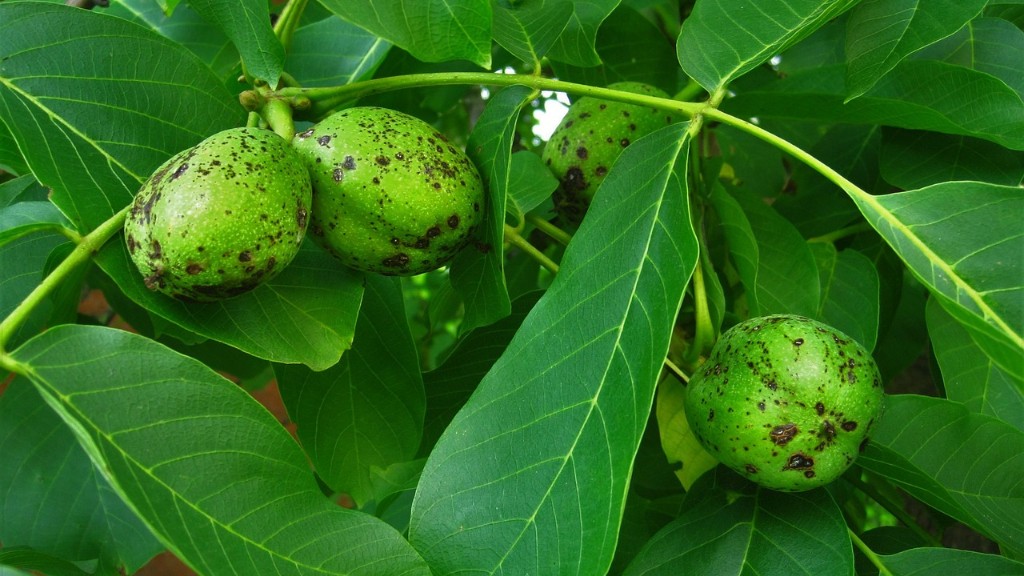When to Feed Meyer Lemon Tree
A Meyer lemon tree is a branched evergreen tree with large, dark green leaves and bears fragrant, lemon-shaped citrus fruits that grow in an abundance year-round. It’s a popular choice of citrus tree used for both home gardens and larger orchards. Properly caring for a Meyer lemon tree involves properly choosing when to feed the tree.
Meyer lemon trees require regular fertilization to maintain healthy growth and maximum fruit yield. The most important factor in deciding when to feed the tree is its age. With young trees, there is a delicate balance between fertilizing the tree enough and fertilizing it too much. If fertilized too much, it can result in too much growth and a decrease in fruit yield.
For the first two years of a Meyer lemon tree’s life, applying a light application of fertilizer mid-way through the season is recommended. Once the tree is established, it should be fertilized at least twice a year, in late winter and in early summer.
Meyer lemon tree growth also depends on proper watering. The tree should be watered deeply and consistently, allowing the soil to become saturated and not allowing it to dry out in between watering. If allowed to dry out, the tree could become Stunted and unproductive.
It’s important to note that Meyer lemon trees can be sensitive to certain fertilizers, or fertilizers of a wrong weight or size. For best results, use a fertilizer specifically designed for citrus trees and follow the recommended application rate.
Finally, it’s important to monitor the nutrient levels in the soil. When the soil nutrients are in balance, the tree will respond well to the fertilizer applied. If the soil levels are off balance, the tree may struggle and reach its full growth potential, regardless of how often it is fertilized.
Fertilizer Form and Timing
When it comes to the timing and frequency of fertilizing Meyer lemon trees, it’s essential to consider the type of fertilizer being used. Generally, citrus fertilizer that is slow release is the easiest to apply and most suitable for citrus trees. This type of fertilizer should be applied in early spring, before the tree starts to flower and resume growth. During this time, the tree needs an extra boost of energy, and the slow-release fertilizer ensures that it is evenly and consistently provided.
A second fertilizer application should occur in early summer, around 4-6 weeks after the first application. This mid-season application should be done when the tree has finished flowering and is growing quickly. If the tree is exhibiting healthy new growth and seems to be growing well, there is no need for another application.
Finally, a light application of crab meal can be applied after harvest to help the tree transition into the winter season. The crab meal helps increase acidity, which boosts flavor and can also help reduce soil composition issues, such as calcium deficiency.
Right Amount of Fertilizer
Another key factor in determining when to feed a Meyer lemon tree is the amount of fertilizer to use. Over-fertilizing a Meyer lemon tree, or any citrus tree, can lead to excessive vegetative growth and harm the tree’s overall health. It is best to adhere to the general rule of using two-thirds of the recommended dose for young Meyer lemon trees and one-half the recommended dose for mature trees.
Foliar feeding is another way to ensure the tree is getting the nutrients it needs. Foliar sprays are a good way to supplement the tree’s nutrition, particularly if the soil test reveals the tree is deficient in certain micronutrients. Foliar spray should be done once a month and stopped during the fall and winter seasons.
Additionally, foliar spray can be used in combination with regular fertilizer applications, to further boost the tree’s nutrition. Typically, foliar sprays should only be used during the spring and summer months when the tree is actively growing and needs the extra nutrients.
Finally, if soil tests reveal that the soil is out of balance and the tree is showing signs of malnutrition, soil amendments can be made. Soil amendments can be done with products that add to or decrease the level of certain elements in the soil, such as magnesium, phosphorus, or nitrogen.
Calcium Supplementation for Meyer Lemon Trees
Calcium is essential for a Meyer lemon tree’s health. Without adequate calcium levels, the tree will not reach its potential growth, and fruits may not be as abundant and flavorful as they would be otherwise. Supplemental calcium can be provided in the form of lime, which should be applied at least once a year as a preventative measure.
For young trees, a light application of lime should be applied in early spring, when the tree is just beginning to grow and establish itself. A slightly heavier application can be made at the same time as the fertilizer, but careful attention should be paid to the soil test results, to ensure the calcium levels are not too high after the application.
In mature trees, a heavy application of lime should be made once a year, in late winter. This is generally sufficient to keep the Meyer lemon tree healthy and well-nourished, but again, soil tests should be done on a regular basis to know for sure.
Also, doing a soil pH test across the entire tree canopy can also be beneficial, as Meyer lemon trees often like different pH levels in their root systems vs in their foliage. If the results of the test show different levels between the foliage and the root system, supplemental calcium can be added in the areas where it is needed.
Organic Fertilizers
Organic fertilizers provide an excellent source of nitrogen, phosphorus, and potassium, which are essential nutrients for a Meyer lemon tree’s health. Organic fertilizers also have additional benefits, as they tend to be easier to break down in the soil, do not burn plants, and generally have a lower risk of leaching.
Organic fertilizers should be used in conjunction with regular fertilizer applications and provide the tree with a slow and steady release of essential minerals and nutrients. Examples of organic fertilizers commonly used for Meyer lemon trees include cottonseed meal, alfalfa meal, manure, and compost.
Organic fertilizers, however, should be used with caution as not all of them are appropriate for citrus trees. Some, for example, may not break down quickly enough, or may contain heavy metals and other potentially harmful substances. Before using any organic fertilizers, it’s important to first research and check the recommendations of the manufacturer.
Importance of Soil Testing
When it comes to proper fertilization of Meyer lemon trees, soil testing is a vital part of the process. Soil testing can help determine the exact nutrient levels in the soil, whether additional nutrients are needed, and what type of fertilizer and/or amendments would be best suited for the tree.
Soil testing should be done at least once a year, on a regular schedule that falls shortly after applying fertilizer, lime, or other amendments to the soil. That way, any soil nutrient deficiencies can be discovered and corrected promptly, to ensure the Meyer lemon tree remains in peak health and reaching its maximum potential.
Finally, soil testing also helps to keep the soil environment balanced, which makes it much easier for the Meyer lemon tree to take up the nutrients it needs. If the environment is out of balance, the tree won’t be able to absorb the fertilizer properly and ultimately won’t reach its full growth potential.





